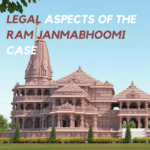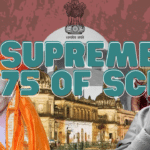
To become a High Court Judge in India, one must follow the following steps:
Acquire a Bachelor’s degree in law (LLB) from a recognized university.
Clear the All India Bar Examination (AIBE) conducted by the Bar Council of India.
Practice as an advocate for a minimum of 10 years in a lower court, or as a senior advocate in the high court.
Be appointed by the President of India on the recommendation of the Chief Justice of India, after consultation with the Chief Justice of the concerned High Court and the Governor of the state.
Take the oath of office and secrecy before assuming the office of the High Court Judge.
Note: The eligibility criteria and the process of appointment may vary slightly from one state to another.
To be eligible for appointment as a High Court Judge in India, one must meet the following criteria:
Age: An individual must be at least 35 years of age to be eligible for appointment as a High Court Judge.
Educational Qualification: A bachelor’s degree in law (LLB) from a recognized university is mandatory.
Bar Council of India Examination: Clearing the All India Bar Examination (AIBE) conducted by the Bar Council of India is necessary to practice law in India.
Legal Practice: An individual must have a minimum of 10 years of experience as a practicing advocate in a lower court or as a senior advocate in the High Court.
Character and Reputation: An individual must have a good moral character and reputation, and must not have been convicted of any offense involving moral turpitude.
Nationality: An individual must be a citizen of India to be eligible for appointment as a High Court Judge.
Medical Fitness: An individual must be medically fit to perform the duties of a High Court Judge.
Note: The eligibility criteria may vary slightly from one state to another, but the above-mentioned criteria are the general requirements for appointment as a High Court Judge in India.
Becoming a High Court Judge in India can be a challenging and competitive process, as the number of vacancies is limited and the eligibility criteria are stringent. Some of the challenges one may face in this process include:
Competition: The competition for a High Court Judge position is high, as there are a limited number of vacancies and many qualified candidates.
Experience: Acquiring the required 10 years of experience as a practicing advocate or senior advocate can be challenging, as it requires a lot of dedication and hard work.
All India Bar Examination: Clearing the All India Bar Examination (AIBE) is a crucial step in the eligibility criteria, and the competition to clear this examination can be high.
Recommendation Process: The appointment as a High Court Judge is made on the recommendation of the Chief Justice of India, after consultation with the Chief Justice of the concerned High Court and the Governor of the state. This process can be complex and challenging.
Character and Reputation: Maintaining a good moral character and reputation is crucial for an individual aspiring to become a High Court Judge, and any offense involving moral turpitude can negatively impact the chances of appointment.
Medical Fitness: An individual must be medically fit to perform the duties of a High Court Judge, and this can be a challenge for some individuals.
Note: These are some of the general challenges faced by individuals aspiring to become a High Court Judge in India. The specific challenges may vary based on individual circumstances.
The role and responsibilities of a High Court Judge in India include:
Adjudication: A High Court Judge is responsible for hearing and deciding on a wide range of civil and criminal cases, and for interpreting laws and delivering judgments.
Dispute Resolution: A High Court Judge is responsible for resolving disputes between individuals, organizations, and the government, and for enforcing the rule of law.
Interpretation of Laws: A High Court Judge is responsible for interpreting the constitution, laws, and regulations of the state and for ensuring that they are applied consistently.
Protecting Fundamental Rights: A High Court Judge is responsible for protecting the fundamental rights of individuals as guaranteed by the constitution.
Supervising Lower Courts: A High Court Judge is responsible for supervising the lower courts within the jurisdiction of the High Court, and for ensuring that they operate effectively and efficiently.
Administration of Justice: A High Court Judge is responsible for the administration of justice within the jurisdiction of the High Court, and for ensuring that justice is delivered in a fair and impartial manner.
Review of Administrative Decisions: A High Court Judge is responsible for reviewing administrative decisions and for ensuring that they are in compliance with the law.
Education and Training: A High Court Judge may also be involved in educating and training members of the legal community and the general public on legal and judicial matters.
Note: These are some of the general roles and responsibilities of a High Court Judge in India. The specific responsibilities may vary based on individual circumstances and the jurisdiction of the High Court.
also read – https://www.careers360.com/careers/articles/how-become-judge-in-india





